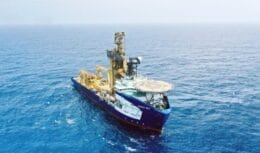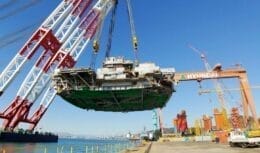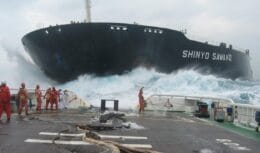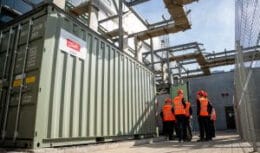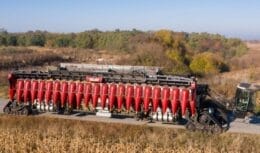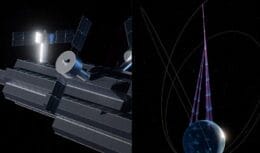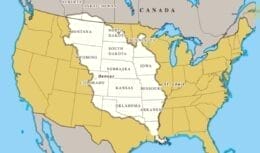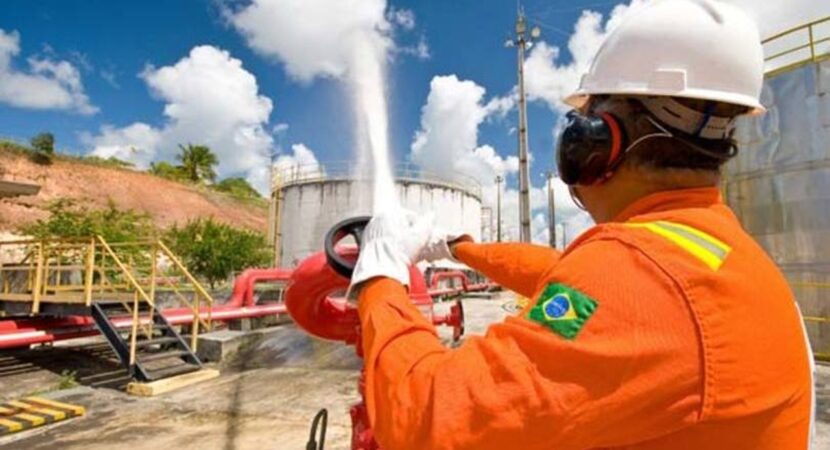
Brazilian oil giant Petrobras has been working to reduce freshwater withdrawals by 50% by 2030.
Petrobras reported this morning (22/03) that last year 74 million m³ of water was reused by borrowing, enough to supply a city of approximately 1,3 million inhabitants for one year. After Bolsonaro exempts PIS and Cofins, Diesel prices rise again and gasoline and ethanol also become more expensive
Read also
- Raízen, Brazil's giant ethanol producer, trains 500 drivers to prevent workplace accidents, fuel spills and improve professional performance
- After Ford, Chevrolet, Honda and Audi withdraw or reduce production of vehicles in the country, the multinational Bosch brings US manufacturing to São Paulo
- Ambev will open 300 jobs in its new logistics center that is being built in Osasco – SP
According to Petrobras, this volume corresponds to approximately 1/3 of the total demand for fresh water in the company's operational and administrative activities, which was 220 million m³. For the second year in a row, the volume of freshwater captured was reduced, from 182 million m³ in 2018 to 146 million m³ in 2020 – a reduction of 20%.
For the state-owned company, water, whose World Day is celebrated on March 22, means not only the continuity of the operations in which it is used, such as steam generation, refrigeration, production and processing of oil, gas and derivatives. It also means an extremely noble resource for all of humanity, and which, therefore, must be the object of constant work so that its use is as rational as possible, in order to contribute to its preservation and availability for all forms of life. For this reason, the company assumed, in its Strategic Plan, the commitment to reduce the abstraction of fresh water by 50% by 2030.
In 2020, Petrobras invested approximately BRL 13 million in Research & Development projects related to the management of water resources and effluents
Achieving this commitment involves portfolio management and a portfolio of actions and projects focused on reuse and measures to reduce water losses. In 2020, the company invested around BRL 13 million in Research & Development projects related to the management of water resources and effluents, in partnership with seven Brazilian institutions (universities and technological institutes).
In addition to investing in reuse projects and research, Petrobras voluntarily supports, through the Petrobras Socio-environmental Program, civil society initiatives that promote the preservation of water resources throughout the country. Currently, 13 projects, within the “Climate” line of action, develop actions aimed at the conservation and recovery of vegetation and which, among other benefits, seek to revitalize springs, preserve springs and watercourses and recompose riparian forest, thus contributing to the quality and quantity of natural resources in watersheds.
Among these projects is Guapiaçu, developed in the eastern portion of Guanabara Bay, one of the largest bays Brazilian. The project contributes to strengthening the ecosystem of the Guapi-Macacu watershed (Guapimirim and Macacu rivers), through ecological restoration and environmental education for students from kindergarten through high school. Environmental education for children and young people in schools in the municipality of Laranjeiras is also one of the pillars of the Azahar: Flor de Laranjeiras project, developed in Sergipe.
Azahar operates in the hydrographic basin of the river that bears the name of the state, in partnership with the Federal University of Sergipe, and seeks to promote efficiency in the use of water. It also contributes to the water sustainability of the Sergipe river basin, monitoring the flow and quality of the water in the river and its important tributary, the Cotinguiba river.
With these initiatives, Petrobras has been contributing to the achievement of the Sustainable Development Goals, such as SDG 6, which deals with drinking water and sanitation, SDG 13, which encourages actions against global climate change, and SDG 15, which deals with the conditions of life on earth.

